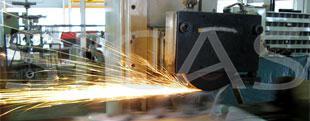 Engineering in China
  |
1. Why Engineering
After studying at engineering university or engineering college, you could find yourself in demand for a high earning career as a civil engineer, electrical engineer, mechanical engineer, chemical engineer, aviation engineer. There are many specializations, and in fact many things you see around you were created by an engineer.
2. Types of Engineering course
3. Which Engineering is right for you?
Petroleum engineering
Petroleum engineering majors learn how to find and remove petroleum and natural gas from the earth. Other topics include the process of turning petroleum and gas into products (such as gasoline) and environmental and safety issues.
Chemical Engineering
A creative, curious, logical math fan who loves solving problems. Engineering majors often do projects as teams, so build teamwork skills now.
As a chemical engineering major, you’ll leave campus to complete a co-op, or internship. As an intern, you'll learn how business and government use the principles you’ve been learning in the classroom.
You might work in a plant and troubleshoot problems on the assembly line. You might work in a lab comparing different plastics. Or you could be part of an environmental firm, traveling to factories with a team of consultants. The possibilities are many.
Mechanical Engineering
Manufacturing engineering
Manufacturing engineers improve the manufacturing process by making it more efficient and cost-effective. They design and develop products, production processes and manufacturing technology. Manufacturing engineering also involves the management of materials and operations.
Programs will typically include classes in advanced mathematics (calculus, differential equations, algebra), hydraulics, thermodynamics, design engineering, fluid dynamics, material science, electronics and more.
Applicants should have a good background in math, physics, mechanics, electronics and computer science.
What are you waiting for? Come to study Engineering in China and realize your dream! |










